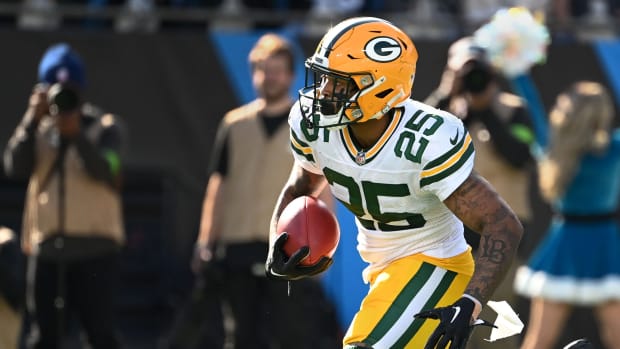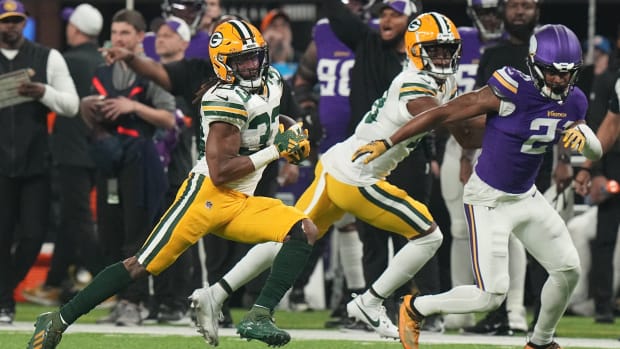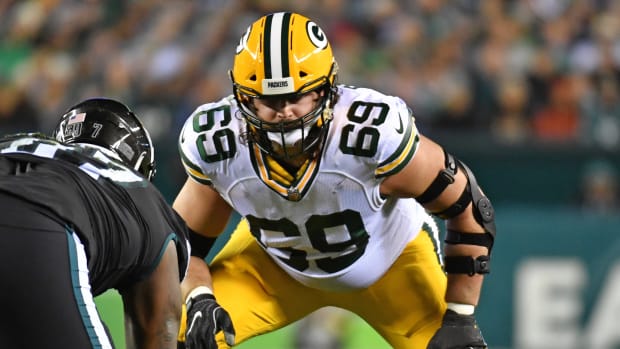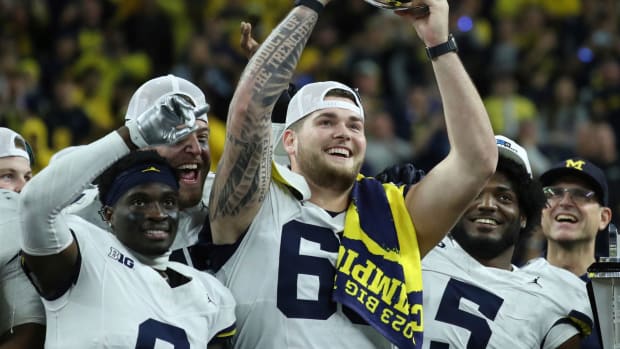Voids in Draft Show What Went Wrong at Receiver for Gutekunst
GREEN BAY, Wis. – Over the last five NFL drafts, 62 receivers have been selected in the first three rounds. Those receivers have been selected by 31 teams.
The only team without one? I’ll give you a minute to come up with a guess.
OK, time’s up. It was the Green Bay Packers.
The receiver position was one of the big themes entering this year’s draft because of the depth of the class and Green Bay’s problems stringing together strong offensive performances, especially against top defenses. General manager Brian Gutekunst’s inability to get one of the top receivers in this year’s draft, therefore, was an equally big story line.
This year’s draft supplied six first-round receivers, seven second-round receivers and three third-round receivers. At every turn, however, Gutekunst’s options were erased. When Minnesota selected LSU’s Justin Jefferson at No. 22 and San Francisco traded up to get Arizona State’s Brandon Aiyuk at No. 25, Gutekunst looked at his board and saw only one player he liked – quarterback Jordan Love – and traded up to No. 26 to get him.
In the second round, the Rams took Florida’s Van Jefferson at No. 57 and the Jets took Baylor’s Denzel Mims at No. 59. Having given up a fourth-rounder in the Love trade, Gutekunst had nothing in his holster to be aggressive. Instead, he took Boston College running back A.J. Dillon. In the third round, Baltimore took Texas slot Devin Duvernay at No. 92. So, Gutekunst took tight end Josiah Deguara.
In the first round, Gutekunst bypassed Clemson’s Tee Higgins, who went No. 33 to Cincinnati, USC’s Michael Pittman, who went No. 34 to Indianapolis, and Colorado’s Laviska Shenault, who went No. 42 to Jacksonville. Higgins and Pittman would have helped, to be sure, but they are perimeter receivers. Led by Davante Adams, Allen Lazard and Devin Funchess, the Packers have plenty of perimeter receivers. What they needed was the slot skill-set possessed by Jefferson, Aiyuk and Shenault; Shenault’s injury history is why he sank into the middle of the second round.
Gutekunst wasn’t the only general manager to see a drop-off in the talent after Mims went in the second. There was a 21-pick gap between Mims and Kentucky’s Lynn Bowden, who went in the middle round to Las Vegas at No. 80. Even more pronounced, there was a 36-pick gap between Duvernay and Central Florida’s Gabriel Davis, who went to Buffalo late in the fourth round at No. 128.
At that point, Gutekunst was done. He’s got a lot of decent receivers. What would be the point of adding another decent receiver? From this vantage point, and it was the right perspective, it was home run or bust at that position.
“I thought the top was one of the stronger drafts at the wide receiver class that I can remember, but the runs went pretty early and once we got to a certain spot, with the group we had coming back, it wasn’t like we weren’t looking to add to that competition,” he said after the draft ended on Saturday. “We just felt that there wasn’t a lot of great candidates that were locks to make our team next year.”
If there’s a reason to be critical, it’s that Gutekunst didn’t act more proactively to get a receiver in the first round – assuming he actually preferred a receiver to a quarterback. Regardless, from the unheralded group of Funchess (second round but on his third team in three years), Marquez Valdes-Scantling (fifth round), Equanimeous St. Brown (sixth round), Lazard (undrafted), Jake Kumerow (undrafted), Reggie Begelton (undrafted; signed from Canada) and Malik Taylor (undrafted; practice squad), the Packers will cross their fingers and hope a couple players can step up to provide a legit threat opposite Adams.
“We really like the group of receivers we have,” Gutekunst said. “We think there’s some guys really coming into their own.”
The fate of the season – whenever it starts and assuming it starts – probably will depend on it.




